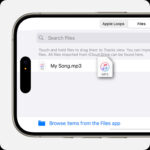A new track circulating online, seemingly sung by Justin Bieber and featuring lyrics about a “Diddy party,” has ignited social media, prompting widespread debate about its authenticity. The song, which surfaced on platforms like TikTok, X (formerly Twitter), and YouTube in April, gained significant traction recently, coinciding with the legal issues surrounding rapper Sean “Diddy” Combs.
The lyrics fueling the speculation include lines like, “Lost myself at a Diddy party/Didn’t know that’s how it’d go/I was in it for a new Ferrari/But it cost me way more than my soul.” Another line adds to the intrigue, mentioning, “Signed a paper so he never has to ever say sorry.”
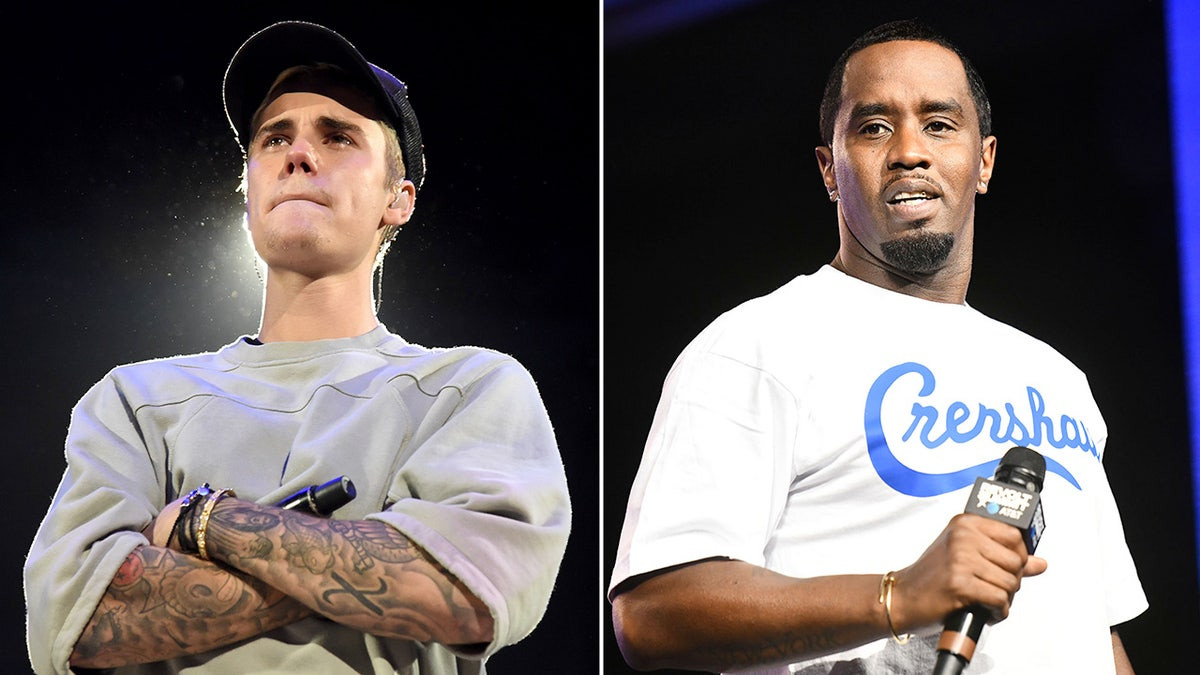 Justin Bieber and Sean 'Diddy' Combs side-by-side. Experts suggest a viral song mentioning Diddy and sung in Bieber's style is likely AI-generated, raising concerns about deepfakes in music.
Justin Bieber and Sean 'Diddy' Combs side-by-side. Experts suggest a viral song mentioning Diddy and sung in Bieber's style is likely AI-generated, raising concerns about deepfakes in music.
While representatives for Justin Bieber have not yet responded to requests for comment on the viral track, numerous experts suggest that the song is highly likely to be AI-generated or created using digital music tools.
Experts Suspect AI Involvement
Marva Bailer, an AI expert, shared with Fox News Digital that the unpublicized nature of the song by the artist is a key indicator of its artificial origin. “The reason why this is generated is because it is not something that’s being publicized by the artist,” Bailer explained. She clarified that “AI-generated” can encompass various methods, including AI tools trained on vocal patterns or other digital music technologies. The rapid advancement and realism of AI technology are contributing to the widespread belief that AI is behind this convincing fake.
Bailer further elaborated on the typical artist release process, noting the absence of pre-release buzz and digital engagement that usually accompany genuine music releases. “Part of the experience of releasing new material is the pre- and post-part of the experience and that digital engagement. So right away we know that this is not real if the artist is not excited about it and hasn’t told us about it.” She highlighted the element of surprise and anticipation that fans expect with new music, contrasting it with the sudden, unannounced appearance of this song, leading fans to question its authenticity. “We haven’t seen this with this scenario, and that’s why the fans are saying this is not my Justin Bieber.”
Rob Rosenberg, founder of Telluride Legal Strategies, echoed this sentiment, suggesting the song’s topical and timely nature raises suspicion. “It’s very difficult to tell, but I think the fact that it seemed very on point and topical, it almost felt too coincidental that it would show up,” Rosenberg stated.
 Experts believe a viral Justin Bieber 'Diddy party' song is likely AI-generated due to lack of promotion and technical inconsistencies, highlighting the rise of deepfake music.
Experts believe a viral Justin Bieber 'Diddy party' song is likely AI-generated due to lack of promotion and technical inconsistencies, highlighting the rise of deepfake music.
Technical Analysis Points to AI
CBS News reported conducting AI audio detection tests on the song, with multiple tools indicating a high probability of AI generation, or at least AI-generated components within the audio.
Experts at Pindrop, a voice authentication and security firm, offered technical insights into identifying AI-generated audio. Sarosh Shahbuddin, senior director of product at Pindrop, explained that AI-generated speech often lacks the frequency nuances of natural human speech. “When we speak, our speech is in a specific frequency range. And what we’ve noticed is that these AI generation systems, they sound really good, but they actually don’t match the way we speak to the exact frequencies like a normal human being. And so we’re able to detect these sort of like frequency variability in AI-generated speaking,” Shahbuddin detailed.
Elie Khoury, Ph.D. and VP of research at Pindrop, further specified three categories of “digital artifacts” that can reveal AI manipulation: acoustic, phonetic, and temporal inconsistencies, along with the unique “digital fingerprint” left by the AI model used in creation.
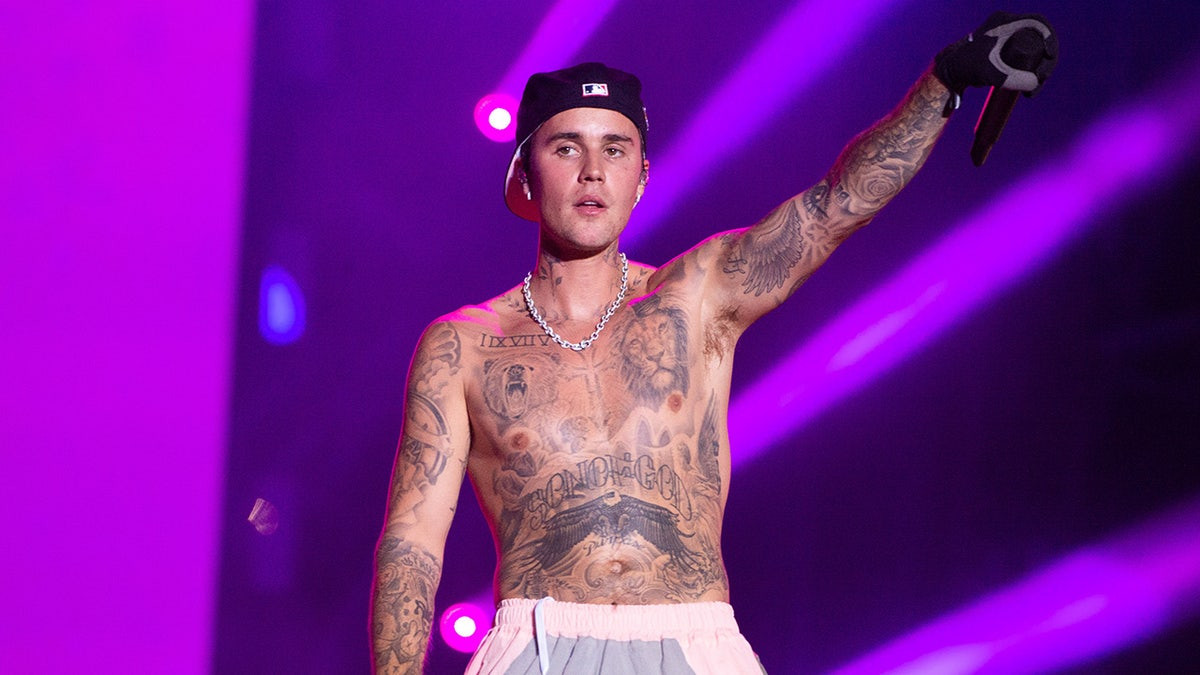 Justin Bieber performing onstage. Voice authentication experts at Pindrop have identified 'digital artifacts' in the viral 'Justin Bieber Diddy song', indicating it's likely an AI deepfake.
Justin Bieber performing onstage. Voice authentication experts at Pindrop have identified 'digital artifacts' in the viral 'Justin Bieber Diddy song', indicating it's likely an AI deepfake.
Deepfakes and Financial Implications for Artists
Beyond the immediate buzz around the “Justin Bieber Diddy Song,” the proliferation of AI-generated deepfakes raises significant concerns for artists and the music industry. Marva Bailer pointed out the financial ramifications, especially on platforms like TikTok, where user-generated content often utilizes background music. “The [point] of TikTok is, you make your fun little creations, and you put cartoons and talking heads and fun new creations, and people are using this as the background music for these new creations. And so it keeps going on and on and on. And normally, if that was a licensed song, every time one of those creations would play, you would get royalties. And then this whole world, nobody’s getting any royalties,” Bailer stated.
Shahbuddin emphasized that music-related deepfakes pose a unique challenge compared to political or other types of deepfakes due to royalty and licensing issues. “These social platforms are going to start to see music-related deepfakes as a very different category of media versus political or other types of deepfakes,” he said. He warned about the potential for financial exploitation if deepfakes are uploaded to streaming services, diverting revenue from legitimate artists. “Imagine if this person who created this deepfake actually submitted it as a song on Spotify and then got thousands of streams. That is money that goes to somebody where they you know that money does not belong to that person.”
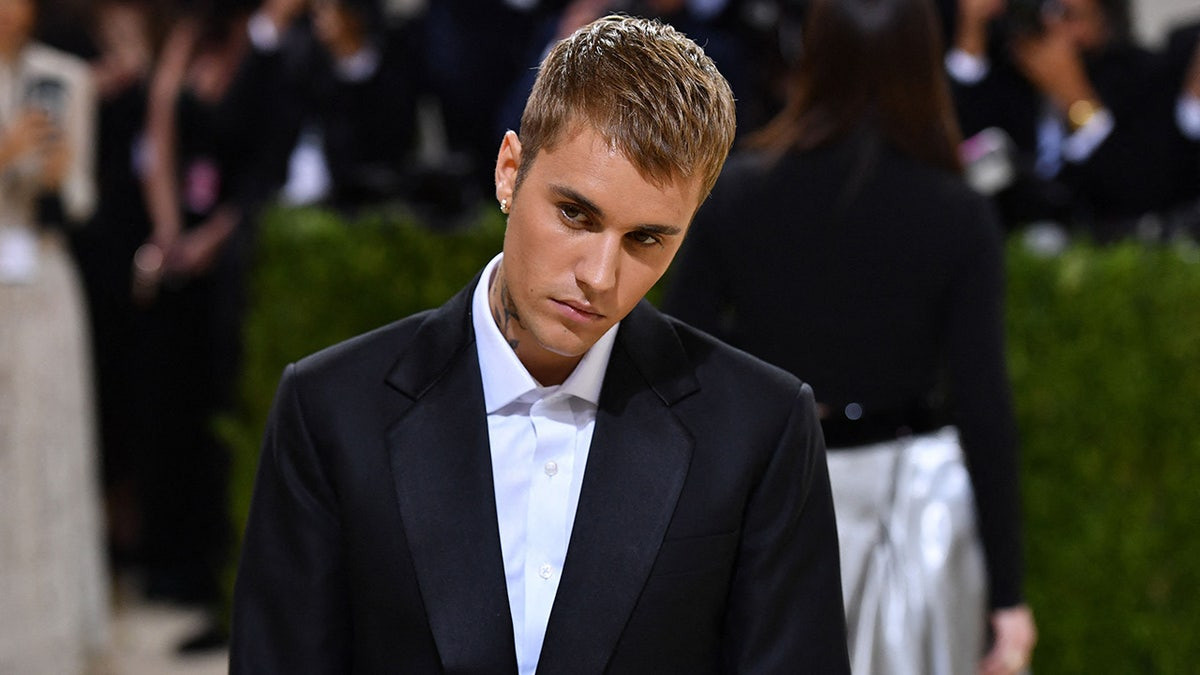 Justin Bieber at the Met Gala. The increasing sophistication of AI deepfakes, like the viral 'Justin Bieber Diddy song', is causing a surge in people checking media authenticity.
Justin Bieber at the Met Gala. The increasing sophistication of AI deepfakes, like the viral 'Justin Bieber Diddy song', is causing a surge in people checking media authenticity.
Bieber’s Silence and Deepfake Proliferation
Despite the song’s virality and the surrounding speculation, Justin Bieber has not publicly addressed the “justin bieber diddy song” or its AI origins. Bailer suggests this silence is strategic, as engaging with every deepfake would be overwhelming and potentially amplify unwanted attention. “Bieber is not addressing it because he has millions of followers on Instagram, and he even [reportedly] gets paid close to $2 million to do a post on Instagram,” she explained. Addressing every unauthorized musical creation would be a constant task, and Bieber’s team likely prefers to avoid drawing further attention to those attempting to exploit his brand.
Shahbuddin and Khoury from Pindrop noted a significant rise in deepfake detection requests, indicating growing public awareness and concern. “There’s very little that can be done to stop the use of those models. It’s crazy,” Shahbuddin remarked regarding the accessibility and unstoppable nature of deepfake technology.
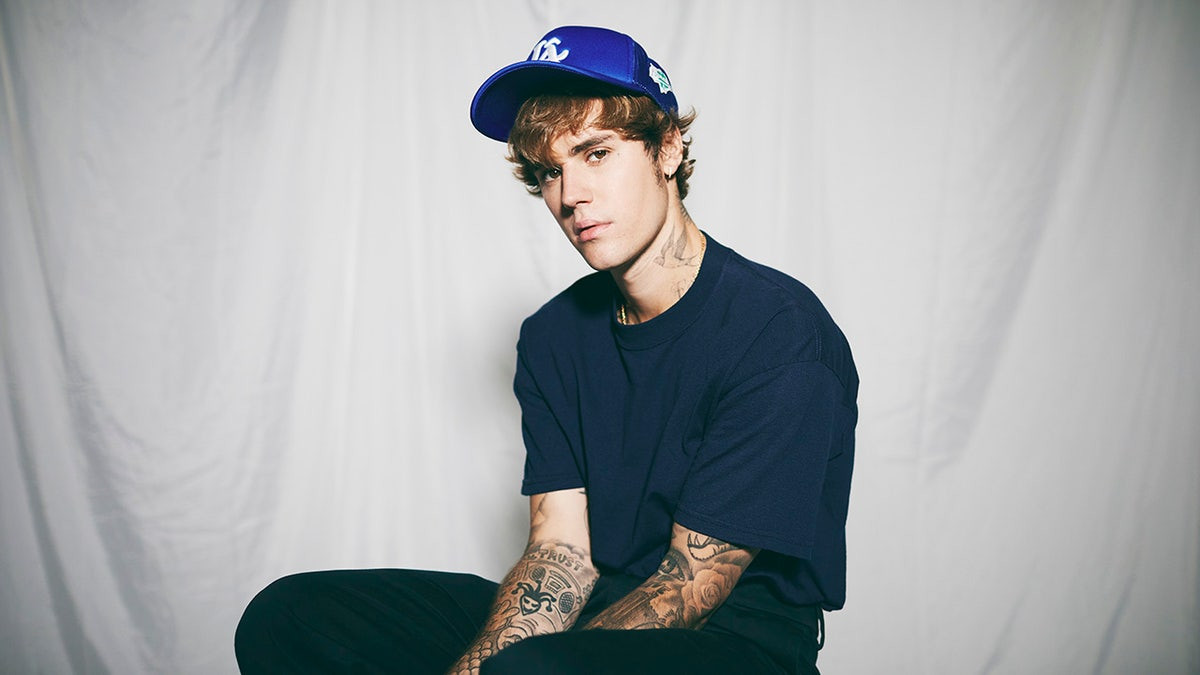 Justin Bieber has not publicly commented on the viral AI-generated song about a 'Diddy party', as his team likely avoids amplifying potential brand-damaging content.
Justin Bieber has not publicly commented on the viral AI-generated song about a 'Diddy party', as his team likely avoids amplifying potential brand-damaging content.
Scrutiny and Disinformation in the Digital Age
The emergence of the “justin bieber diddy song” coincides with increased scrutiny of Justin Bieber’s past associations with Sean “Diddy” Combs amidst ongoing legal controversies surrounding Combs. Resurfaced videos and images of their interactions are being re-examined by fans and the public.
Rob Rosenberg advises caution amidst the influx of information, both real and fabricated. “I actually think we’re going to see a lot more new information come to light, and I think at the same time that’s happening, there’s going to be new disinformation,” he warned. He emphasized the need for critical evaluation of online content, stating, “There’s going to be deepfakes, people who are exercising all their creative juices and creating images and video and stories, which is why people are really going to have to scrutinize the things that they see and they find to make sure they’re not just being messed around with.”
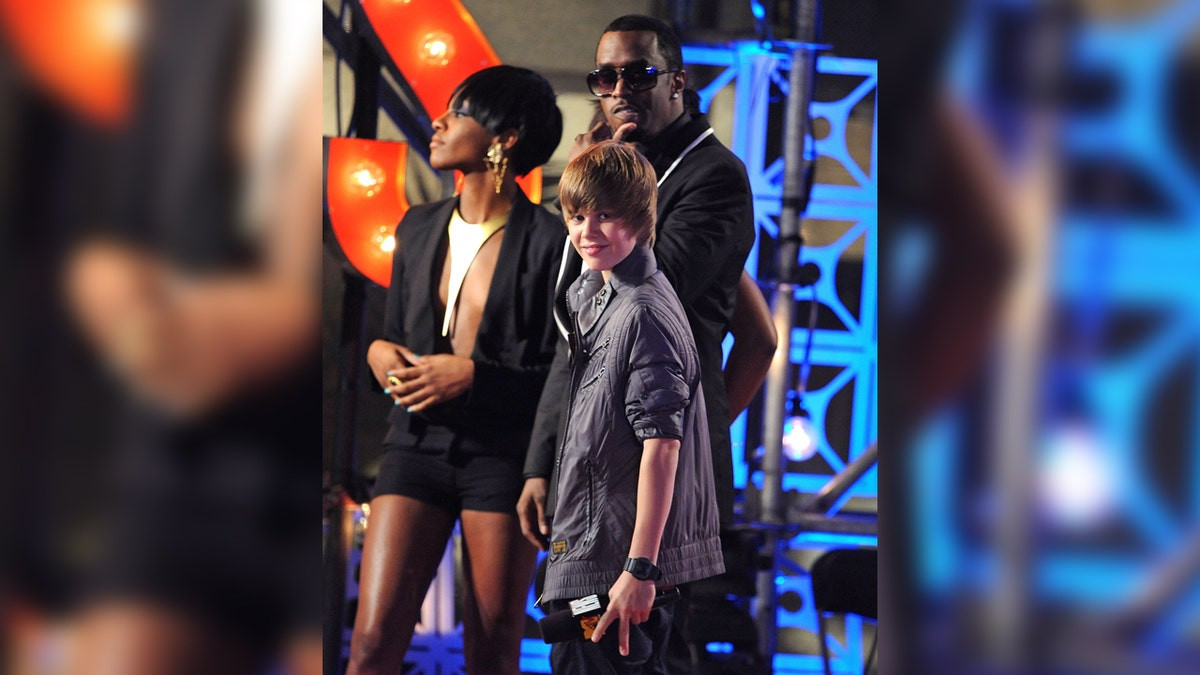 A young Justin Bieber with Sean 'Diddy' Combs. Resurfaced videos of Bieber and Diddy's past interactions are being scrutinized amidst allegations against Combs and the viral AI 'Diddy song'.
A young Justin Bieber with Sean 'Diddy' Combs. Resurfaced videos of Bieber and Diddy's past interactions are being scrutinized amidst allegations against Combs and the viral AI 'Diddy song'.
The “justin bieber diddy song” serves as a stark reminder of the rapid advancements in AI technology and its potential to create convincing deepfakes, posing challenges for artists, the music industry, and online information integrity. As deepfake technology becomes more sophisticated and accessible, critical thinking and media literacy are increasingly vital for navigating the digital landscape.

